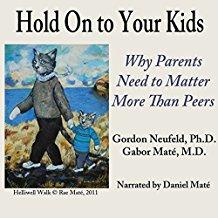Through my life, I have always looked forward to the next ‘adventure’ whether it is geographical, academic, relationship-oriented or ‘other’ in nature. I feel I’ve always had ‘meaningful’ goals, and perhaps it is my curiosity that ensures there is something always interesting on the horizon. If there isn’t, I guess I explore more new ideas through reading, conversations or whatever opportunities arise, and that keeps life fresh and interesting for me – so much so that I feel life is too short to ever really achieve everything I want to. So I focus on the most meaningful at whatever time of life I’m in. That used to be my profession of teaching at which I threw myself 100%. It was unsustainable of course as so many educators find out, but I was lucky enough to pull back just in time to preserve my passion in this area, and not destroy my family life.
At this time of life, it is my immediate family that are most important and a lot of my reading and personal development centres around strengthening my partnership with my spouse and being a better parent. These goals are so much harder than any career and academic ones I’ve had in the past, because the stakes are just so high and there is no one right way or anyone that can share your very unique perspective.
Nonetheless, here are tools that I’ve found very useful:
Although I’d been studying psychology for a few months, I’d never heard of attachment theory until a module in the Saylor Academy course brought it up. Somewhere along the way, there was a recommendation (or perhaps a reference to?) this book and so I used my much-neglected Audible account to download it to my phone. I usually reserve getting au dio for books I don’t intend to spend too much time and energy on, but this one was different from the first listen. It not only revealed to me the concept of attachment theory, but made clear how essential it was to foster this between parents and children, and how my parenting style was not ideal for this connection. Myself and my partner listened in parallel and immediately implemented changes to bring our behaviours and attitudes into line to create secure attachments with our kids. Of course it’s an ongoing and inconsistent process, but we already feel the differences we’ve made have had an impact and – maybe for the first time in 12 years – I feel truly informed and empowered as a parent to feel confident in framing my interactions and other efforts with my children.
dio for books I don’t intend to spend too much time and energy on, but this one was different from the first listen. It not only revealed to me the concept of attachment theory, but made clear how essential it was to foster this between parents and children, and how my parenting style was not ideal for this connection. Myself and my partner listened in parallel and immediately implemented changes to bring our behaviours and attitudes into line to create secure attachments with our kids. Of course it’s an ongoing and inconsistent process, but we already feel the differences we’ve made have had an impact and – maybe for the first time in 12 years – I feel truly informed and empowered as a parent to feel confident in framing my interactions and other efforts with my children.
Think and Listens
I came across these while completing a certificate in Permaculture. While they come from a dubious source, the process itself is rather liberating. You and your partner (whoever they may be to you) agree a time limit. It’s usual to start with 3 minutes to begin with. The first person then takes 3 minutes to talk about anything and everything they’d like to. The speaker does not have to think about whether they are making sense, or feel any sense of ‘must’ – just use the time as they wish to air their thoughts on a particular or no particular subject(s). The listener gives complete and undivided attention. There are no mobile phones around, no TV, nobody else – absolutely zero distractions and – other than short utterances to indicate listening such as, ‘Yes / I see / OK’ etc, the only requirement is to keep eyes and ears on the listener. When the time limit expires, you swap roles and repeat.
My partner and I did this daily for a while and found that it really helped our communication. I tend to talk a lot, whereas he is more reserved and that meant there was a definite imbalance in our time together in terms of who was talking and who was listening. This redressed the balance (somewhat), and as we had a fixed time, he soon learned to prepare himself mentally in terms of collecting things he’d like to talk about between sessions.
I did try to introduce this process with a close friend, but she really felt uncomfortable so it’s not a tool for everyone. All I can say is that for us it had a very positive impact and I’d recommend that anyone keep an open mind and give it a go.
This book focuses on how to switch from being a critical parent (me to a tee), focusing on the shortcomings in your child (and yourself and others), to one who recognises and nurtures strengths. This is definitely a challenge for me (as I’m sure it is for many others) as I intuitively felt that ignoring issues with my kids’ behaviours was a path to immorality, slovenliness, selfishness and goodness knows what other horrifying traits to see in your offspring. But in focusing on what they did wrong, I lost so many opportunities to focus on what they do right.
This read is full of anecdotes (some of which admittedly are a wee bit of a stretch to believe) and lots of practical advice that you can put into action straight away. Here’s one of my own anecdotes to share…
After reading a section of the book on defaulting to noticing the good over the bad, I went up to my youngest son’s room to see what he was up to. In entering the room, I noticed his stuff all over the floor but taking a breath, I looked beyond that and noticed that he’d made his bed – something he doesn’t always remember to do. So, rather than starting with the usual, “How many times do I have to bla bla bla nag nag nag…”, I congratulated him on remembering to make his bed – to which I really did see him glow! As he basked in his glory, I then said, “Would you mind clearing this up to so your room is as tidy as your bed?” and he practically leapt up to move the items on the floor. This is an absolute first. Usually it’s a battle of wills where he tells me he’s busy / will do it later / that it’s organised but I just can’t see how etc. It gave me a boost to realise how easily this could have been a negative interaction and since then I’ve really been trying to make positive observations my default.
Gratitude Journal
I’d heard of this before but probably dismissed it with some cynicism. It was reintroduced in my Positive Psychology studies so I thought I could give it a go – it’s not like it carries any risk.
It’s very simple habit where I write down at least 3 things I am grateful for before I go to sleep. I also add the ‘why’ detail so I am sure I’m savoring the positive aspect thoroughly. Google calendar reminds me every evening at the same time. Rather than wasting time finding a beautiful repository for my thoughts, I simply grabbed an old notebook and got down to it. Sometimes – if I don’t have the notebook to hand – I simply reply to the reminder on email and move the message to a dedicated ‘3 things’ folder. Simple and effective.
I’ve encouraged my eldest to keep one, though I think he’s less consistent than me. With the 2 youngest, I just ask them what they are grateful for as they settle down for the evening, and sometimes one of them will start the discussion at the dinner table (as this is a previous ritual we let slide).
So there are a few things I use to try and keep myself on the path toward my personal development goals. What I love about learning is that I can always find more to add to my toolkit and it is empowering to work intentionally toward such important and life-changing habits.

